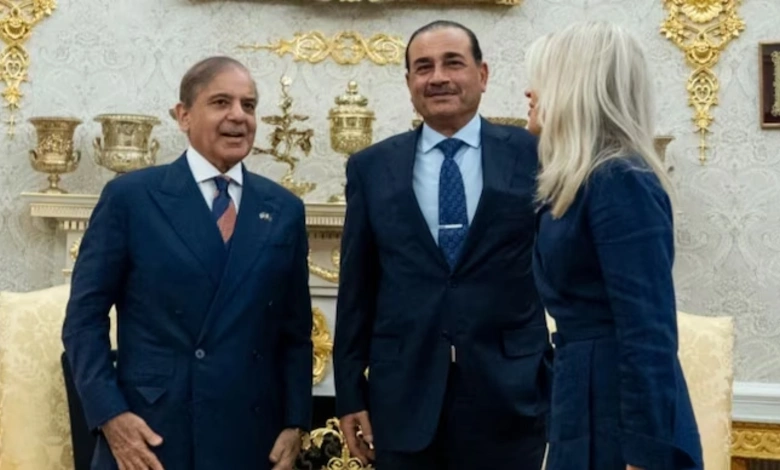In a significant diplomatic encounter, US President Donald Trump received Pakistani Prime Minister Shehbaz Sharif and Army Chief Field Marshal Asim Munir at the White House on Thursday, signaling a notable improvement in relations between Washington and the nuclear-armed South Asian country.
Sharif, accompanied by Munir, arrived shortly before 5 p.m. at the West Executive Avenue entrance, greeted by top US officials. The private meeting in the Oval Office represented Sharif’s inaugural session with a sitting American president and marked the first such visit by a Pakistani prime minister since Imran Khan’s appearance there in July 2019.
Discussions were anticipated to span bilateral ties, commerce, regional stability, and international issues. For the 74-year-old Sharif, the engagement concluded an intensive US itinerary. He had participated in a multilateral dialogue with Trump and leaders from eight Arab and Muslim countries on the fringes of the United Nations General Assembly, centering on resolving the Israel-Hamas conflict in Gaza. Sharif also spoke at the UN Climate Summit in New York and was set to present Pakistan’s official address to the General Assembly the following day.
The occasion held deeper symbolism. Sharif’s administration has actively pursued stronger connections with Trump, who maintains a longstanding rapport with Pakistan’s military establishment. Trump entertained Munir at a White House lunch in June, after which Munir put forward Trump’s name for the Nobel Peace Prize. Pakistani officials subsequently acknowledged Trump’s contributions to brokering an India-Pakistan ceasefire.
Prior to the meeting, Trump commended the visitors in remarks to journalists from the Oval Office, calling them “great leaders.” He stated, “We have a great leader coming, the Prime Minister of Pakistan and the Field Marshal. Field Marshal is a very great guy, and so is the Prime Minister, both, and they’re coming, and they may be in this room right now.”
This warming of US-Pakistan dynamics unfolds even as Trump’s relationship with Indian Prime Minister Narendra Modi appears to cool. The change aligns with India’s heightened imports of Russian oil following Moscow’s 2022 incursion into Ukraine. In response, Trump imposed steep tariffs on Indian products—reaching 50 percent last month—aiming to curb Russia’s war funding indirectly.
Conversely, the US and Pakistan have drawn nearer. A July agreement, as reported by the Associated Press, paves the way for American involvement in tapping Pakistan’s underdeveloped oil resources in exchange for reduced duties on Pakistani goods.
Sharif has enhanced his rapport with Trump by supporting his Nobel Peace Prize candidacy, crediting US facilitation of the May India-Pakistan truce. Modi, by contrast, has refrained from attributing the success to Trump.
Nevertheless, Trump indicated last week that commerce discussions with India persist. In a Truth Social post, he wrote, “I look forward to speaking with my very good friend, Prime Minister Modi, in the upcoming weeks. I feel certain that there will be no difficulty in coming to a successful conclusion for both of our Great Countries!”
